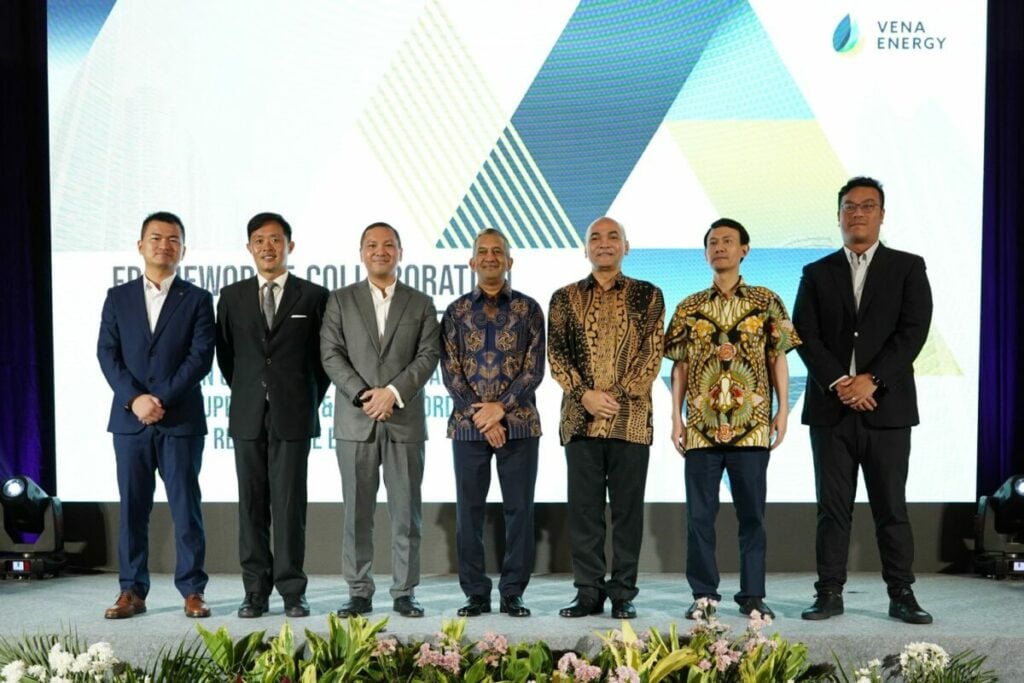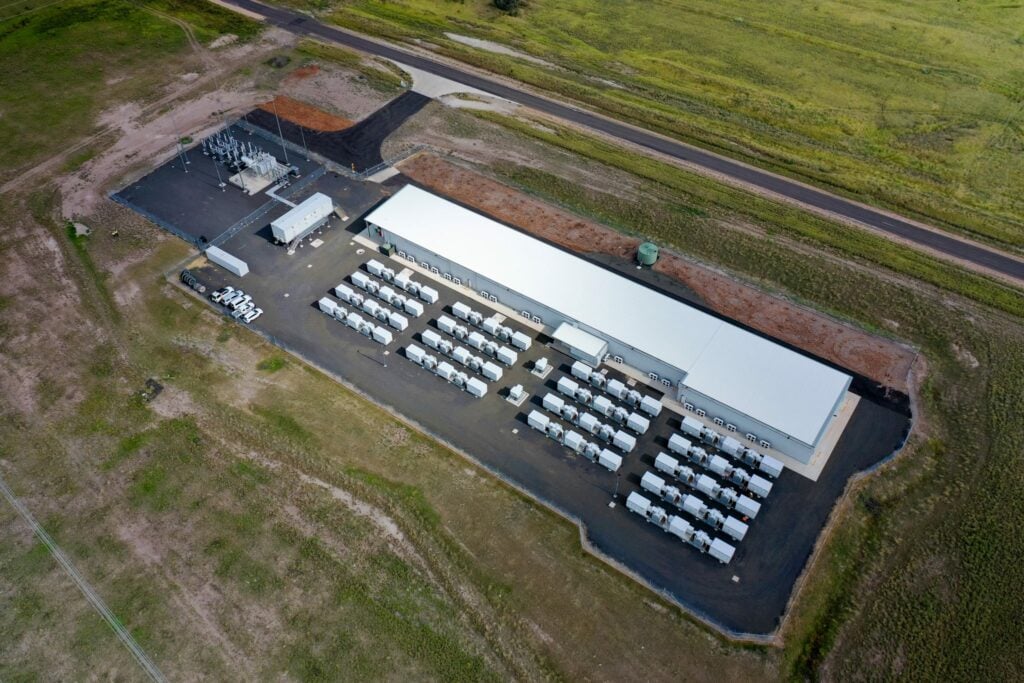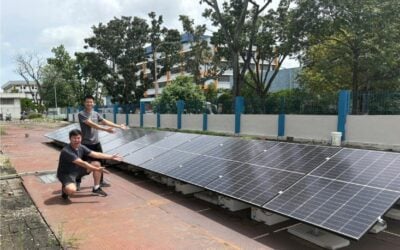
A framework agreement has been signed between developer Vena Energy and key technology suppliers to a cross-border clean energy ‘hybrid megaproject’ in Indonesia.
Asia-Pacific renewable energy developer and independent power producer (IPP) Vena Energy is planning a project that would combine up to 2GW of solar PV generation capacity with as much as 8GWh of battery storage.
Enjoy 12 months of exclusive analysis
- Regular insight and analysis of the industry’s biggest developments
- In-depth interviews with the industry’s leading figures
- Annual digital subscription to the PV Tech Power journal
- Discounts on Solar Media’s portfolio of events, in-person and virtual
The three other counterparties to the agreement are Chinese solar technology company Suntech, US-headquartered battery energy storage system (BESS) system integrator and manufacturer Powin Energy and battery cell maker Rept Battero, another Chinese company.
The agreement covers the exploration of opportunities to create local production lines for solar PV module and BESS components. Production lines would support what Vena Energy described as its hybrid megaproject, in development on Indonesia’s Riau Islands province.
In addition to the signing of the agreement with the three manufacturers and tech providers, Vena Energy also signed a collaboration agreement with Shell Eastern Trading, the Singapore-based subsidiary of Shell, for power from the Riau Islands facility to be supplied cross-border to Singapore.
Vena Energy, also headquartered in Singapore, has been in the Indonesia market since 2015, developing five onshore wind and solar PV plants with a combined capacity of 114MW since then.

“With this Framework Agreement, we aim to significantly contribute to the development of a productive domestic supply chain in the renewable energy sector, which will support Indonesia’s energy transition plan and enhance the local economy by creating jobs, fostering industrial expansion and opening export opportunities in this growing sector of the economy,” Vena Energy CEO Nitin Apte said.
Partners target Indonesia value chain, Singapore decarbonisation
Indonesia is targeting carbon neutrality across its economy by 2060, and for greenhouse gas (GHG) emissions to peak by 2030. However, the country’s dependence on coal for power generation has grown significantly in the past decade, with various sources putting coal at around 60% of Indonesia’s generation mix as of 2021.
The Asian Development Bank (ADB) recently identified helping the Southeast Asian country’s transition away from coal as one of the key priorities for a US$35 million clean energy financing initiative, the GEAPP Energy Access and Transition Trust Fund (GEATTF). The fund was launched in April by the ADB and non-profit Global Energy Alliance for People and Planet (GEAPP).
From a deployment perspective, battery storage has not yet taken off in Indonesia beyond a handful of projects including a 5MW pilot announced by the government in March 2022.
In November last year, state-owned power distribution and monopoly electricity supplier PT Perusahaan Listrik Negara (PLN) signed a Memorandum of Understanding (MoU) with Saudi Arabian developer ACWA Power to investigate possible projects using technology including pumped hydro energy storage (PHES), large-scale battery storage, and green hydrogen or ammonia production.
In the upstream space, another state-owned company, PT Industri Baterai Indonesia, or Indonesia Battery Corporation, is currently exploring opportunities to establish battery cell manufacturing and energy storage integration facilities in the country with engineering specialist Citaglobal.
Meanwhile, cross-border transmission of energy has been a hot topic across Southeast Asia. Many attendees at the recent Energy Storage Summit Asia 2023 event mentioned proposals for an ASEAN power grid.
For countries like Singapore which have high energy demand but little land to accommodate renewable energy generation, getting energy across borders from places like Malaysia or Indonesia which have ample land and solar resource, could be vital in decarbonisation and modernising the grid.
However plans for one such project were dropped recently by its developer Sembcorp. The Singapore-based infrastructure developer in March announced the termination of a joint development agreement (JDA) for a project in Indonesia’s Batam, Bintan and Karimum region that would have hosted up to 1GW of solar PV with battery storage, for transmission to Singapore.
“By collaborating on this transformative hybrid project, we are not only supporting the economy of Indonesia by creating jobs through localised manufacturing, but we are also accelerating Singapore’s journey towards its ambitious sustainability and climate goals,” Powin Energy president Anthony Carroll said.






